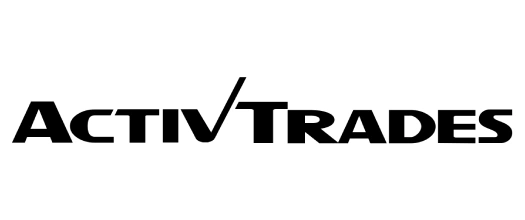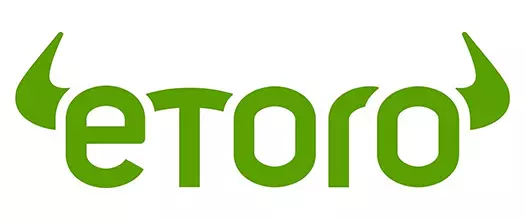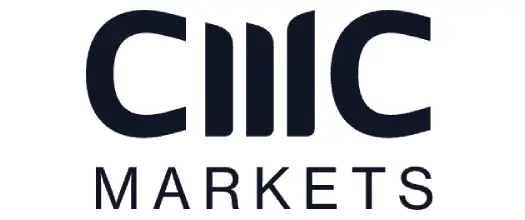UK traders have access to a wide range of trading asset classes, with Commodity Contracts for Difference (CFDs) being a particularly popular choice. Commodity CFDs enable traders to speculate on the price movements of commodities such as oil, gold, wheat and many others without actually owning the physical assets. This type of trading offers a flexible and diverse way to participate in the market, making it appealing to both beginners and experienced traders.
 IG
IG Eightcap
Eightcap ActivTrades
ActivTrades FxPro
FxPro eToro
eToro CMC Markets
CMC MarketsBelow you can find more information about the best CFD trading platforms in the UK:
- IG, an FCA-regulated broker, offers prices for more than 50 commodity markets, providing competitive spreads for precious and base metals, energies and softs. Further exposure is possible through spread betting. Additionally, customers can trade commodity-linked shares and exchange-traded commodities.
- Eightcap, a brand authorised by the FCA, provides a solid range of CFDs for hard and soft commodities like gold, silver, crude oil and agricultural products. Customers can trade these markets on TradingView, with competitive spreads starting from 1.2 pips for XAU/USD.
- ActivTrades, a broker holding a licence from the FCA, quotes prices for over 15 hard and soft commodities, such as gold, silver, copper, natural gas, soybean meal, wheat, sugar and more. The products are tradable through CFDs on spot commodities and futures contracts.
- FxPro, an FCA-compliant brand, offers trading on metals, energies and agriculture through spot and futures CFDs. The minimum contract size for spot gold CFDs is one troy ounce.
- Customers of eToro, another FCA-regulated brokerage, have a choice of 46 commodities, ranging from precious metals like gold and palladium to agricultural products like rice, oats, corn and soybeans. Most commodities can be traded through futures CFDs, with leverage of up to 1:20 for gold and 1:10 for other products.
- Traders at CMC Markets, an FCA-authorised brand, can access over 100 commodity markets, including favourites like natural gas, gold, crude oil and silver. Further exposure is possible with commodity indices that group various agricultural products, precious metals and energies together.
With Commodity CFDs, traders can respond to price movements in commodities without having to deal with the storage and ownership of physical goods. This opens up new opportunities for portfolio diversification and risk management. In this article, we will delve deeper into the basics of Commodity CFD trading and explore how UK traders can benefit from this opportunity. With the right knowledge and strategies, traders can navigate the commodity markets with confidence and make informed decisions to achieve their goals.
Commodity CFDs Explained
Commodity CFDs are financial instruments that allow UK traders to speculate on the price movements of commodities without actually owning the underlying assets. These instruments are particularly popular owing to their high flexibility and liquidity. Through Commodity CFD trading, traders can access a wide range of markets, including metals such as gold and silver, base metals like copper, energy commodities like oil and gas, and agricultural products like wheat and coffee.
Commodity CFD trading involves entering into a contract with a broker that specifies the difference between the buy and sell prices of a commodity at the time of the contract’s initiation and expiration. If the trader correctly predicts the direction of the price movement, they can earn a profit equivalent to the difference between the two prices.
Commodity CFDs offer several benefits, including the ability to trade on margin, which means that traders can use a relatively small amount of capital to take a larger position in the market. This can increase their potential profits but also carries the risk of incurring larger losses if the market moves against them. Additionally, Commodity CFDs provide traders with the ability to trade in both rising and falling markets, allowing them to profit from price movements in either direction.
Commodity CFD trading enables you to take both long (buying) and short (selling) positions. A long position means that the trader speculates that the price of a commodity will rise. If a trader takes a long position in gold, for example, they expect the gold price to be higher in the future than at the time of purchase. Conversely, a short position means that the trader speculates that the price of a commodity will fall. If they take a short position in oil, they expect the oil price to decrease.
Categories of Commodity CFDs
Commodity CFDs are popular financial instruments that allow traders to speculate on the price movements of various commodities without owning the underlying asset. Commodities are typically divided into two main subgroups: hard and soft commodities.
Hard Commodities
Hard commodities are natural resources that are mined or extracted. They are typically divided into two categories:
- Energy Commodities: These include crude oil, natural gas and other energy resources. They are crucial for global economies and are highly sensitive to geopolitical events, supply disruptions and changes in energy policies.
- Metals: This category includes precious metals like gold and silver, as well as base metals like copper and aluminium. Precious metals are often seen as safe-haven assets during times of economic uncertainty, while base metals are closely tied to economic activity and industrial demand.
Soft Commodities
Soft commodities are agricultural products or livestock. They are typically grown rather than mined or extracted. Examples include:
- Agricultural Products: Wheat, corn, soybeans, coffee, sugar and cotton fall into this category. Prices are influenced by factors such as weather conditions, crop yields and global demand.
- Livestock: This includes commodities like live cattle and lean hogs. Prices are affected by supply-chain dynamics, feed costs and consumer demand.
Here is a breakdown of some of the most popular commodities traded in the CFD market:
- Gold – Gold is considered a safe-haven asset and is often used as a hedge against inflation, currency fluctuations and economic instability. Central-bank policies, geopolitical tensions and the strength of the US dollar (as gold is priced in USD) are among the main factors affecting its price. Consider monitoring trends during periods of economic uncertainty or when the US dollar is volatile if you plan to trade CFDs on gold.
- Silver – Silver has both industrial and investment demand, making it more volatile than gold. Industrial demand (e.g. electronics, solar panels), gold prices and economic growth are some of the key drivers of silver’s price fluctuations. If you are interested in silver trading, remember that silver often follows gold but can experience sharper price swings because of its dual role.
- Copper – Known as ‘Dr Copper’ for its ability to predict economic trends, copper is closely linked to industrial activity and is also a popular instrument among CFD traders. Global economic growth, construction demand and supply from major producers like Chile can all affect the price of the metal. If Commodity CFDs are your preferred instruments, consider using copper as a barometer for global economic health.
- Crude Oil – Crude oil is one of the most traded commodities owing to its critical role in global energy supply. Its price can be affected by OPEC decisions, geopolitical events, inventory data (e.g. EIA reports) and global demand. Before trading crude oil, pay attention to supply disruptions and macroeconomic trends that affect energy consumption.
- Natural Gas – Natural gas is highly volatile and influenced by seasonal demand (e.g. heating in winter). Price movements are often driven by weather patterns, storage levels and energy policies. It is advisable to monitor weather forecasts and inventory reports for short-term trading opportunities.
- Wheat – Wheat is a staple food crop and its prices are sensitive to supply-and-demand dynamics. Weather conditions, crop reports and global demand may also affect the asset’s price, so UK traders should keep an eye on USDA reports and global weather patterns that influence crop yields.
- Coffee – Many traders prefer CFDs on coffee as it is a highly traded soft commodity with significant price volatility. Its price may be affected by factors such as weather in major producing regions (e.g. Brazil, Vietnam), global demand and supply-chain issues. Watch for frost or drought conditions in key growing areas if you intend to trade CFDs on coffee.
Brokers Compared by Gold Spread
Using Leverage on Commodity CFD Trades
Commodity CFDs offer the opportunity to trade with leverage, which means that traders can use a relatively small amount of capital to take a larger position in the market. This can increase potential profits but also carries the risk of incurring larger losses if the market moves against them. It is essential that traders use leverage responsibly and implement effective risk-management strategies to minimise potential losses. By combining leverage with a solid risk-management approach, traders can increase their chances of making successful trades and maximise their returns.
However, it is crucial to understand the risks involved in using leverage. Leverage can amplify losses as well as profits, and traders should be aware of the potential risks before using it. Additionally, they should adjust their leverage according to their experience and risk profile to ensure they do not risk more than they can afford to lose. It is also advisable for traders to set stop-loss orders and limit their position sizes to minimise potential losses.
For UK retail traders, the maximum leverage available for CFDs on commodities is capped at 1:10. The only exception is gold, which offers a higher maximum limit of 1:20. These leverage caps are part of the Financial Conduct Authority (FCA)’s product-intervention measures aimed at protecting retail investors from excessive risk when trading leveraged products like CFDs.
How to Choose the Right Broker for Commodity CFD Trading?
When selecting a broker for Commodity CFD trading, UK traders should consider several factors, with regulation, availability of Commodity CFDs and trading conditions being just a few of them. Regarding regulation, UK traders should look for FCA approval, as the FCA is the official regulator in the UK. Alternatively, it is also safe to trust brokers that have been licensed and approved by other major regulators across the EU.
Traders should also consider the broker’s trading conditions, including the spreads, commissions and leverage offered. A good broker should provide competitive trading conditions and should not charge excessive fees. Additionally, traders should review the broker’s customer service, including the availability of support staff, the quality of educational resources and the speed of trade execution.
Strategies to Utilise When Trading Commodity CFDs
When developing strategies for trading Commodity CFDs, traders should consider several factors. These include analysing market trends, using technical indicators and conducting fundamental analysis. It is also essential to implement effective risk-management techniques to minimise potential losses. By combining technical and fundamental analysis, traders can increase their chances of success.
Traders should also stay up-to-date with market news and trends to make informed decisions and adjust their strategies accordingly. This can include following market analysts, reading financial news and participating in online trading communities.
Traders may also consider using technical indicators to help them make trading decisions. Technical indicators, such as moving averages, the Relative Strength Index (RSI) and Bollinger Bands, can help them identify trends and predict future price movements. By using technical indicators, traders can increase their chances of closing their positions at a profit while minimising losses.
Finally, traders should consider using risk-management strategies to minimise potential losses. This can include setting stop-loss orders, limiting position sizes and using leverage responsibly. By implementing sound risk-management practices, traders can protect themselves from significant losses and maximise their profits.
Below, we have listed several trading strategies popular with UK CFD traders. While we cover only the basic features of each one, you can find more information on some of them on our website:
- Trend following: This involves identifying the direction of the market trend and trading in the same direction.
- Range trading: The strategy entails identifying the price range within which a commodity is trading and placing trades inside that range.
- Breakout trading: Here you aim to identify the point at which a commodity breaks out of a range or trend and trade in the direction of the breakout.
- Scalping: This involves making multiple small trades in a short period to profit from minor price movements.
- Hedging: The approach entails taking a position in a commodity to offset the risk of a position in another commodity or asset.
By using these strategies and staying up-to-date with market news and trends, traders can increase their chances of success and achieve their goals. However, it is essential always to exercise caution when making trading decisions and never to risk more than you can afford to lose.
FAQ
What are the most popular commodities to trade through CFDs in the UK?
In the UK, the most popular commodities for CFD trading include gold, crude oil, natural gas and agricultural products like wheat and coffee, as well as precious metals such as silver and platinum.
Can I trade Commodity CFDs on mobile devices in the UK?
Yes, many brokers offer mobile trading apps that allow you to trade Commodity CFDs on the go. These apps provide real-time data, charting tools and easy access to your account.
What is the key regulatory body overseeing commodity trading in the UK?
The primary regulatory body for commodity trading in the UK is the Financial Conduct Authority (FCA). It is responsible for authorising and regulating firms that offer commodity trading services to ensure market integrity and protect consumers. Brokers operating in the UK generally need FCA approval.
What is the minimum deposit required to start trading Commodity CFDs in the UK?
The minimum deposit varies by broker but typically ranges from £100 to £500 for opening an account with most UK CFD brokers. Always check the broker’s terms for specific requirements.
What taxes may apply to CFD commodity traders in the UK?
Profits from CFD trading are generally subject to Capital Gains Tax (CGT) in the UK. Every individual has an annual CGT allowance (as of 2024/25, it is £3,000). Profits exceeding this amount are taxed at 10% for basic-rate taxpayers and 20% for higher- or additional-rate taxpayers.